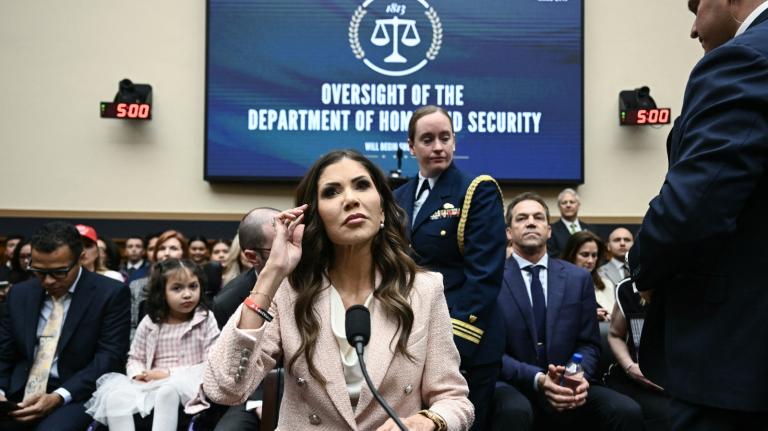For the most part, the jackassery of Washington Post columnist Robert Samuelson is background noise for me, easy enough to ignore. But when he writes about global warming, I can’t help but pay attention, despite the dyspepsia that inevitably ensues.
Samuelson has one of his characteristically cranky, daft columns up, making an argument that Matt aptly summarizes as, "since the best measures to stop global warming are politically unpopular, it’s obvious that environmentalists are all frauds and we shouldn’t do anything to stop global warming."
Here are three particularly irksome features of Samuelson’s writing on this issue (features that are lamentably common among the Beltway commentariat):
1. He ignores the dozens of things we could do about global warming that would be revenue neutral and/or an economic stimulus. There’s pay-as-you-drive car insurance. There are feebates, which are just one of many varieties of tax shifting. Another is a carbon tax that’s used to reduce payroll taxes, or refunded equally to all citizens, a la Alaska’s oil revenue. Another is regulatory reform in the electric industry, which right now is incentivized to promote over-consumption of energy. There’s net metering, to allow people to feed energy back into the grid. There are all manner of public works and public investment projects that could create new jobs and new markets. There’s simply withdrawing subsidies now offered to fossil fuels, and withdrawing the many state and local subsidies for sprawl.
It’s possible that we won’t achieve the necessary emission reductions without eventually imposing something that causes an economic slowdown, but there’s a long way we could go before reaching that point — and who knows what kind of momentum we’d build in the meantime, or what kind of unexpected synergies might crop up? Robert Kennedy Jr. is fond of saying, "in all cases, wise environmental policy is wise economic policy," and that’s a hell of a lot closer to the mark than Samuelson’s old, tired dichotomy.
2. Why begin by emphasizing costs? Why ignore all the win-win options? Because Samuelson, like so many self-consciously centrist Beltway pundits, thinks that "serious" policy is coextensive with policy that imposes hardship on the middle class. "Pain," they cry eagerly. "Somebody propose some pain!" On this issue, as on so many others, the conclusion that pain is necessary is not reached by dispassionate analysis but by a lazy heuristic, a tic. Its virtue is that it enables a writer to issue hard-headed, no-nonsense calls for political bravery — or, more to the point, to issue scathing denunciations of Democrats (always Democrats) for failing to show this bravery. "If they were serious they would propose pain!"
3. Samuelson ignores the legions of people at the local, state, and federal level who are busting their asses to come up with smart, effective policy on climate change, in favor of focusing on … people who buy Priuses. Why? Because Samuelson, again like so many of his Beltway confederates, hates dirty hippies, and really hates the fact that they’re right on this incredibly vital issue. So he focuses on this ephemeral pop sociology crap. He wants his readers to believe that the people who have been banging the drum on this danger for 20 years are vain and shallow, while intransigent shitheels like Samuelson are, you guessed it, serious.
The most mystifying thing about Samuelson, as I’ve said before, is his utterly dismal, disdainful view of the United States. We know how to solve this problem, but we won’t because we’re all preening narcissists.
Someone should ask him why hates America so much.
Addendum: I’m a little late to the Samuelson-hatin’ party. See Matt Yglesias here and here, Ben Adler, Brad Delong (who notes that Samuelson opposed an energy tax back in 1992 when it was an actual option), and — my personal favorite — The Editors, which is so good I have to reproduce it here:
There are a lot of deeply stupid and entirely unserious people in this world, many of whom have biweekly columns in the Washington Post, and at least one has botha WaPo column and a stupid walrus face. Most of them spent a significant part of the last decade airily dismissing the conclusions of professional climate scientists and/or pretending that the publicly available and crystal-clear opinions of these scientists were some fuzzy blob of uncertainty from which one could conclude nothing but that knowledge qua knowledge is impossible in this hopeless miasma of subjectivity which is This Universe, and even that’s a guess. I don’t know why they did it – maybe the results made them uneasy, maybe they were paid to say these things, or maybe they are just utterly pig-ignorant – and I don’t know why they are now grudgingly admitting that up has, indeed, turned out not to be down as so many very grinning imbeciles very serious people assured us it was, but rather up-esque instead (although, certainly, nowhere near as up as unserious extremists would have you believe, snigger snigger snort!) Now these people are offering their very serious opinions about how we should do nothing about this problem, or that everybody who does something about it has some horrible moral failing which defies description, or how only by doing nothing can we really do something, or whatever the fuck the horseshit is this week. I thought maybe I would spend some of my free time pointing out some of the deeply stupid, entirely unserious, and/or walrus-faced public figures who have behaved and continue to behave this way, but then I remembered that I’d rather die of fucking exploding face cancer than read another Gregg Easterbrook column; so fuck that, you’re on your own. However, I would just remind you that people having such a track record deserve to be completely ignored, except for the purposes of publicly throwing this track record back in their walrus faces. And maybe a touch of childish ridicule.


